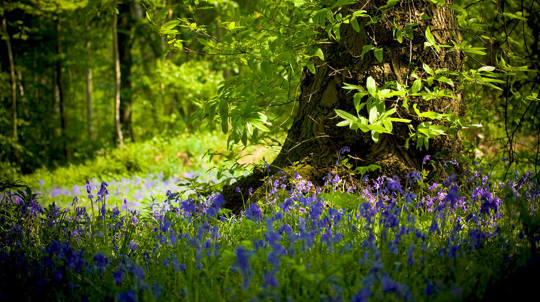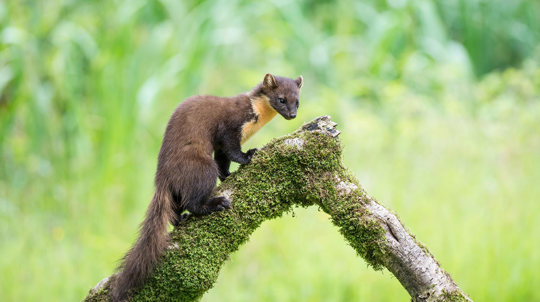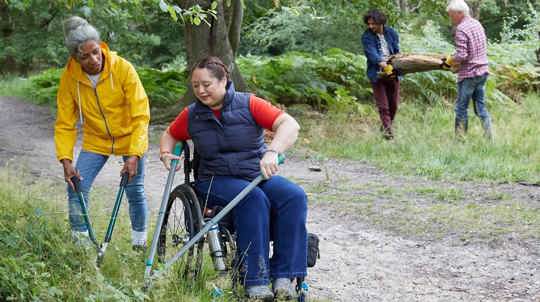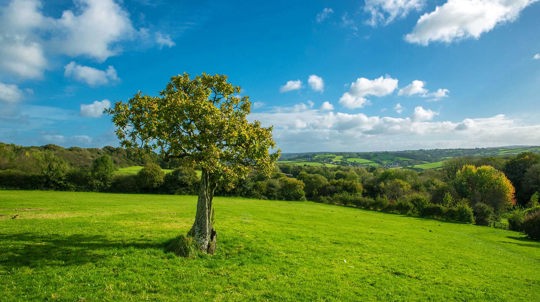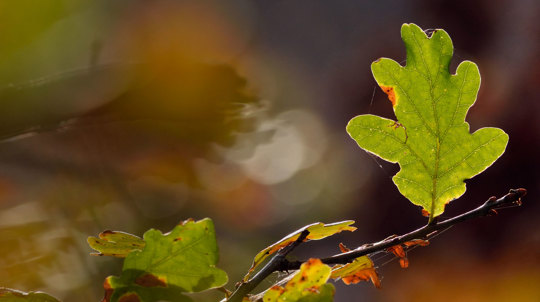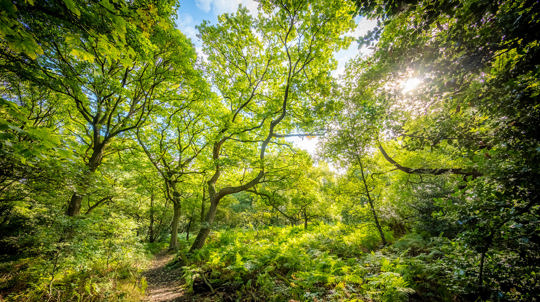Creating a UK rich in woods and trees: the environmental impact
As the UK’s largest woodland conservation charity, we place the health of the environment at the heart of everything we do. We plant trees that lock up carbon, create new habitats for wildlife, and restore damaged ancient woods with the potential to revitalise the world for nature and people.
We’re committed to working as sustainably as possible, both on the ground in our woods and in our offices. Our sustainability strategy establishes goals we're working hard to reach by 2030, and which reflect our belief that the way we operate is just as important as the work we do. It also sets a framework to actively reduce the environmental impact of our operations and to develop a clear reporting framework to monitor whether we’re meeting our objectives.
What are we doing to reduce our environmental impact?
From monitoring our carbon emissions to phasing out plastic tree guards, we're taking a climate-positive approach to how we protect, restore and create woods and trees.
Climate actions
We want to reduce our carbon emissions as much as possible. We also want to use our influence to help others reduce their carbon emissions.
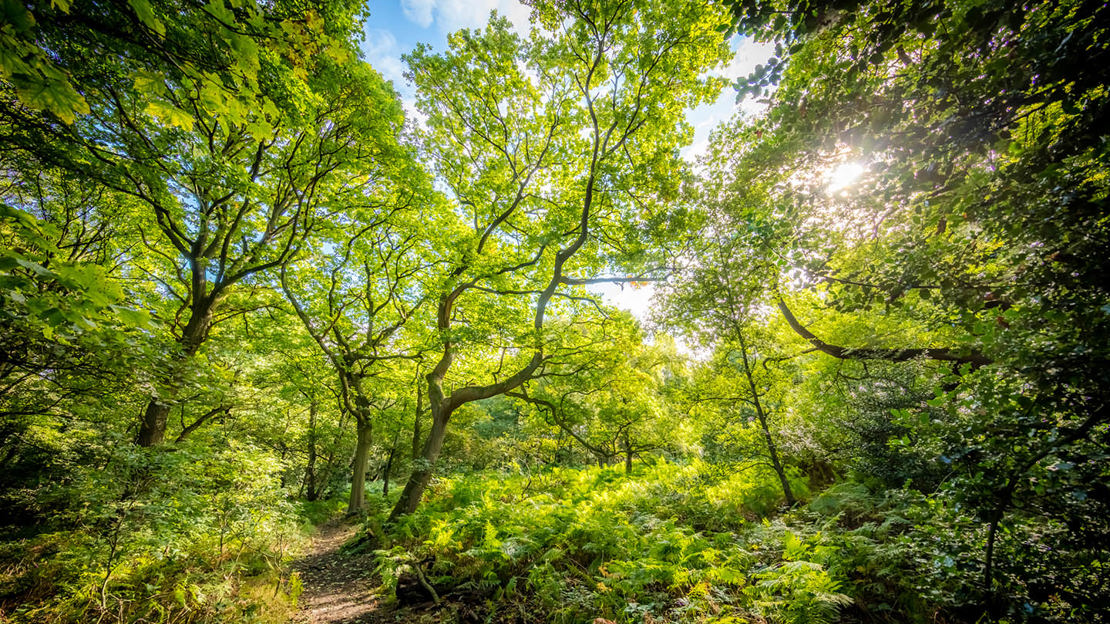
Monitoring carbon emissions
We’ve undertaken an initial carbon baselining process informed by the Greenhouse Gas (GHG) Protocol and principles of the Science Based Targets initiative (SBTi). The next step is to create a decarbonisation timeline for our emissions. This work will ensure we keep more accurate records of the carbon sequestered and stored as part of our woodland restoration and creation activities, and help us work out how we could capture more. Ultimately, it will demonstrate the value of the carbon sinks we conserve.
Carbon intensity ratio
In addition to calculating absolute greenhouse gas emissions, we additionally monitor our carbon footprint using a carbon intensity ratio of tonnes of CO2e from vehicles and energy consumption per staff full-time equivalent (FTE). Even as our organisation grows, we hope to remain below one tonne of CO2e.
Our emissions are calculated in accordance with the GHG Protocol and in alignment with the Streamlined Energy and Carbon Reporting Guidance 2019, utilising the UK Government Conversion Factors 2021.
Energy
Our carbon work also helps us monitor and optimise our energy usage. Our Head Office in Grantham was designed and constructed according to energy efficient design principles, but we’re looking at options to further improve, including the potential to install our own renewable generation. In the meantime, we continue to buy our electricity from renewable sources and ensure we’re using the lowest carbon tariffs on offer.
Vehicle use
We look after woods in all four countries of the UK. These are often in remote locations, which means vehicle use is essential if we're to look after them.
In order to manage our woods but also reduce our carbon footprint, we’re increasing the percentage of electric vehicles in our fleet, with 31 vehicles on order at the time of writing. This represents 23% of our total fleet and will mean that our fleet’s average emissions will drop to a projected 78g/km on delivery (down from 118g/km in January 2020).
In addition to this, we encourage employees to use public transport or car sharing as an alternative to driving wherever possible, and continue to hold virtual meetings wherever we can.
Resource use
Our goal is to transform our business model; investing in our staff, systems and processes to support the transition to more sustainable ways of working.
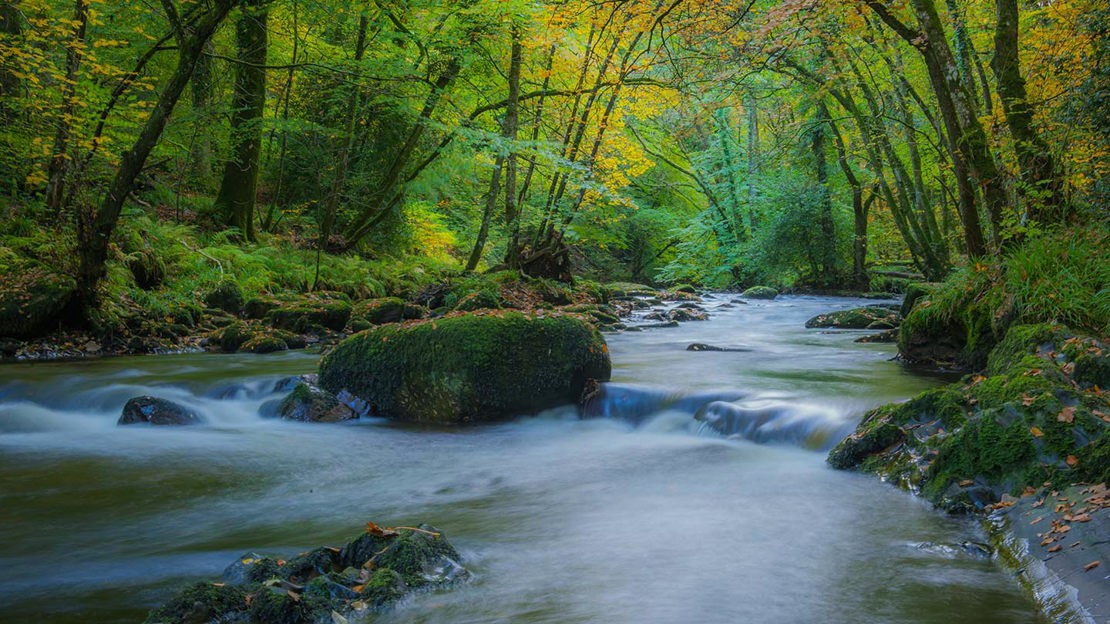
Plastic
As one of the biggest tree planting organisations in the UK, we believe it’s our responsibility to lead the way in reducing the use of plastic tree guards and develop innovative ways protecting trees from hungry herbivores. In January 2022, we stopped using new plastic tree guards on our estate, an action we estimate saves more than 300 tonnes of plastic over five years.
We’re also an active member of the Forest Plastics Working Group, which shares best practice for sustainable tree planting across the whole of the UK. Through this group and other action and advocacy work, we aim to help anyone involved in tree planting make sustainable choices.
Our focus remains on tree guards, as this is where we’ve identified we can have the most beneficial impact and influence. This does not mean we’re not looking at all plastic use within our operations, but are seeking to reduce usage everywhere.
Water
Though an increase in homeworking has seen our water consumption drop considerably, we’re exploring ways to reduce water usage at Head Office, our regional offices and on our estate. This includes exploring opportunities to improve the data we gather, including the potential to install data loggers in remote locations.
We recognise that water is one of the most precious resources on the planet today. In addition to monitoring our direct usage, we’re committed to better understanding the positive role our estate and woodland management can play in the protection and quality improvement of local and regional water resources, for communities and others.
Waste
We’re proud to have achieved a 100% diversion of waste from landfill in our offices; keeping our waste out of landfills. We actively recycle wherever possible, with residual general waste going to energy recovery.
To further monitor our impact, we’re working on improving the way we collect data about the waste we generate outside of the office environment.
Living systems
We aim to promote – through the nature we care for and our collective expertise – an evidence-based, nature-positive approach to woodland and other habitat management.
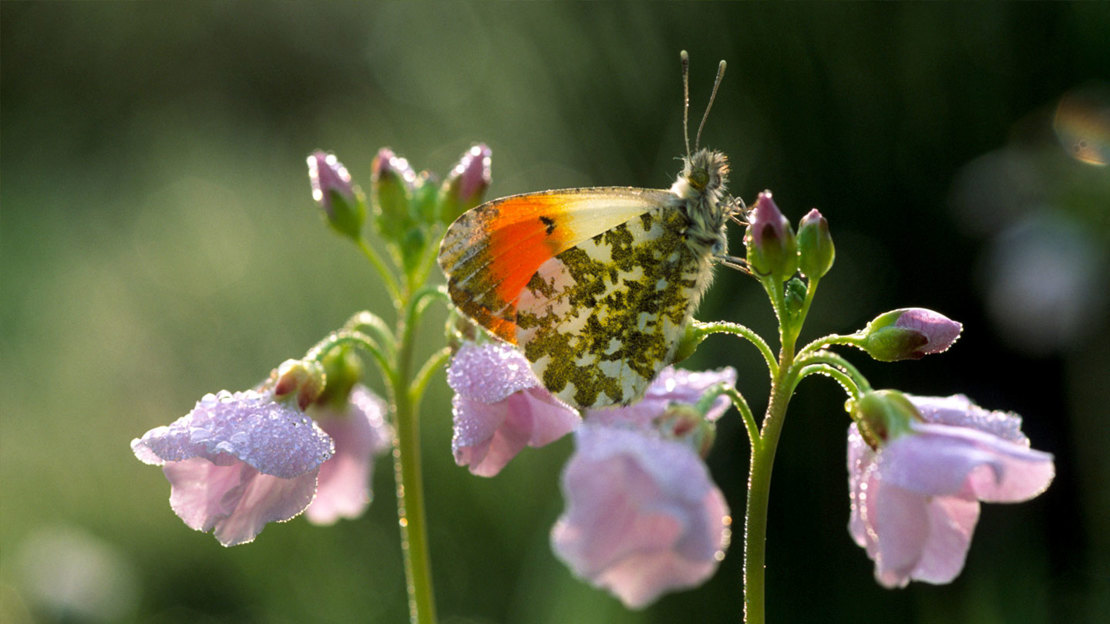
Peat
Healthy peatlands are vital carbon sinks and important wildlife habitats, yet peat is still used as a growing medium for commercial nurseries. Peat extraction not only degrades these vital habitats but turns peat from a sink to a source of global carbon emissions.
We’re committed to removing peat from our core contracts. Of the 5.7 million trees we purchased during the 2021–2022 season, 98% were grown peat-free. Our goal is to remove peat entirely from our direct supply chain.
We’re focused on reducing peat use outside of our core contracts too, and promote peat reduction strategies to all the nurseries we work with as part of our UK and Ireland Sourced and Grown (UKISG) assurance standard.
Pesticides
We’re proud to use a minimum of pesticide across our estate, going beyond what is recognised as best practice for the sector. We carry out a full environmental and social risk assessment before we apply any chemical or non-chemical method of vegetation control.
We only use pesticides where they’re absolutely needed to help new trees become established, or to control non-native, invasive species like rhododendron, which quickly outcompetes native trees, shrubs and plants. Even then, we apply only what is absolutely necessary, and only in a highly targeted manner. If we need to spray pesticides, we use large buffer zones between spray areas and public rights of way, and we close areas to the public when we’re spraying.
We’re committed to further reducing our reliance on chemicals, and are actively working with other conservation organisations to share knowledge and best practice to effectively manage competing vegetation chemical free.
Creating resilient environments
It’s essential that we future-proof our operations so we can respond to the changing climate and environment in a way that benefits nature and people.
Our climate is changing and will continue to do so, making the work we do more important than ever.
Our UK and Ireland Sourced and Grown assurance scheme aims to increase both the supply and demand of UK and Ireland sourced trees, to reduce the spread of imported pests and diseases. We're also embarking on a programme to understand the broader range of risks a changing climate poses for our woodlands, and to determine the most effective ways to protect against them.
Taking this one step further, we’re seeking opportunities – through techniques such as natural flood management – to use woodlands both directly and in partnership to protect local communities from the effects of climate change.


